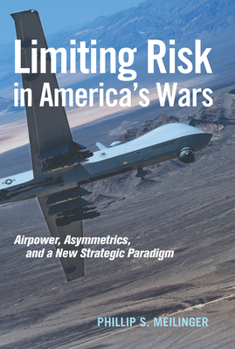Limiting Risk in America's Wars: Airpower, Asymmetrics, and a New Strategic Paradigm
(Part of the Transforming War Series)
Select Format
Select Condition 
Book Overview
The United States has the most expensive and seemingly unstoppable military in the world. Yet, since World War II the nation's military success rate has been meager. The Korean War was a draw, while Vietnam, Mogadishu, Afghanistan, and Iraq were clear losses. Successes include Iraq in 1991, the Balkans (Croatia and Kosovo), Panama, the initial takedowns of Afghanistan in 2001 and Iraq in 2003, and Libya. What differentiates the failures from the successes? Failures have been marked by the introduction of large numbers of conventional American ground troops, while successes have been characterized by the use of airpower, special operations forces, robust intelligence and sensor platforms, and the use of indigenous ground troops. Phillip S. Meilinger's new book advocates strategies that limit risks in war as well as achieve measurable goals. Instead of large numbers of conventional ground troops, the author argues in favor of a focus on asymmetric capabilities-a combination of airpower, special operation forces, intelligence, and indigenous ground troops-to achieve the desired political outcomes.
Format:Hardcover
Language:English
ISBN:1682472507
ISBN13:9781682472507
Release Date:November 2017
Publisher:Naval Institute Press
Length:304 Pages
Weight:0.60 lbs.
Dimensions:1.0" x 6.1" x 9.1"
Related Subjects
HistoryCustomer Reviews
0 rating





